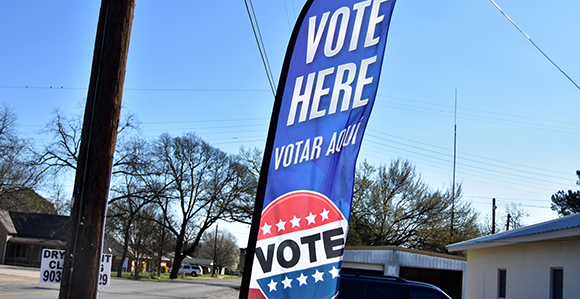First Presidency Asks Members to Oppose Recreational Marijuana, Assisted Suicide
Contributed By Camille West, ChurchofJesusChrist.org Church News

The First Presidency encourages all members to be informed voters.
Related Links
The First Presidency has sent letters to Church leaders and members in four states urging them to vote against proposed recreational marijuana and physician-assisted suicide legislation.
Recreational marijuana
In an October 13 letter to Church leaders and members in Arizona, California, and Nevada, the First Presidency addressed legislation that would legalize the use of marijuana for recreational purposes. They wrote:
“Drug abuse in the United States is at epidemic proportions, and the dangers of marijuana to public health and safety are well documented. Recent studies have shed light particularly on the risks marijuana use poses to brain development in youth. The accessibility of recreational marijuana in the home is also a danger to children.
“We urge Church members to let their voices be heard in opposition to the legalization of recreational marijuana.”
Physician-assisted suicide
In a letter dated October 13 to Church leaders and members in Colorado, the First Presidency urged Church members to oppose Proposition 106, which would legalize physician-assisted suicide:
“The Church maintains a firm belief in the sanctity of human life and opposes deliberately taking the life of a person even when the person may be suffering from an incurable condition or disease (see Handbook 2: Administering the Church [2010], 21.3.3). Life is a sacred gift and should be cherished even in difficult circumstances.
“Physician-assisted suicide is permitted by law in some countries and a few states in the United States. Experience suggests that such legalization [of physician-assisted suicide] can endanger the vulnerable, erode trust in the medical profession, and cheapen human life and dignity. Moreover, the decision to end one's life carries a lasting impact far beyond the person whose life is ending.”
“While the Church opposes physician-assisted suicide, members should not feel obligated to extend mortal life through means that are unreasonable. Decisions in such cases are best made by family members after receiving wise and competent medical advice and seeking divine guidance through fasting and prayer (see Handbook 2: Administering the Church [2010], 21.3.8)
“We urge Church members to let their voices be heard in opposition to the measures that would legalize physician-assisted suicide.”
Political neutrality
While the Church does not endorse, promote, or oppose political parties, candidates, or platforms, it does address “issues that it believes have significant community or moral consequences or that directly affect the interests of the Church” (see “Political Neutrality”).
In an October 5 letter read from pulpits across the country, in which the First Presidency encouraged members to vote and participate in the political process, it again affirmed “its institutional neutrality regarding political parties and candidates,” as well as its “constitutional right of expression on political and social issues.”
